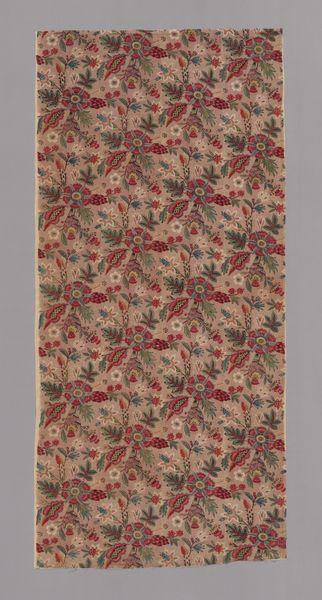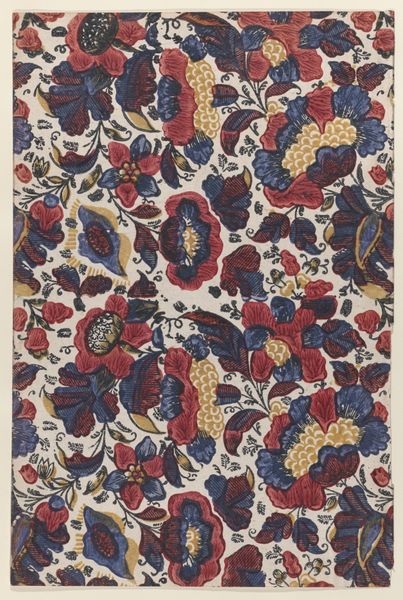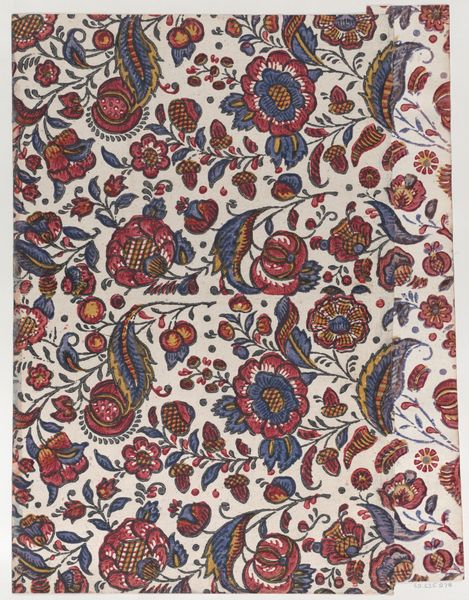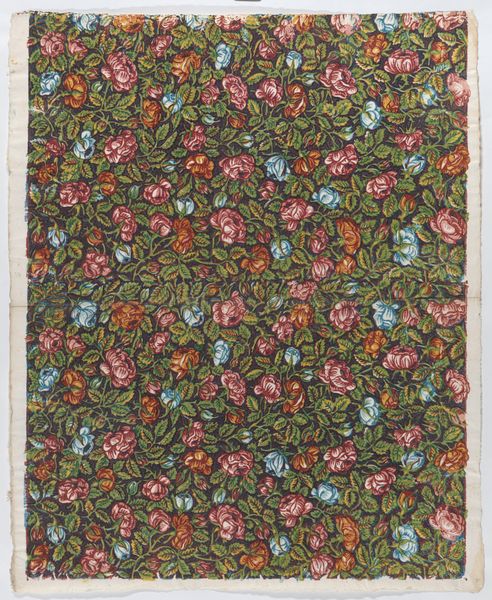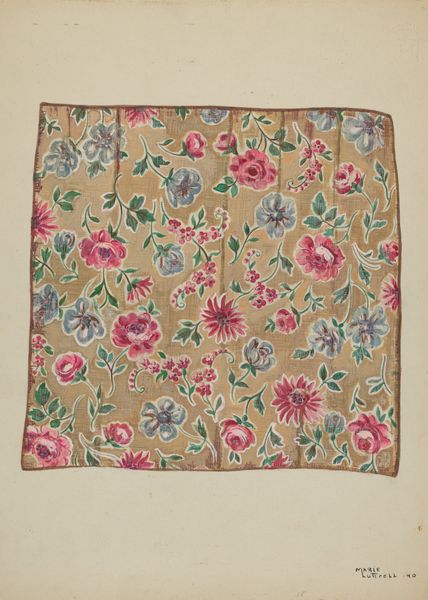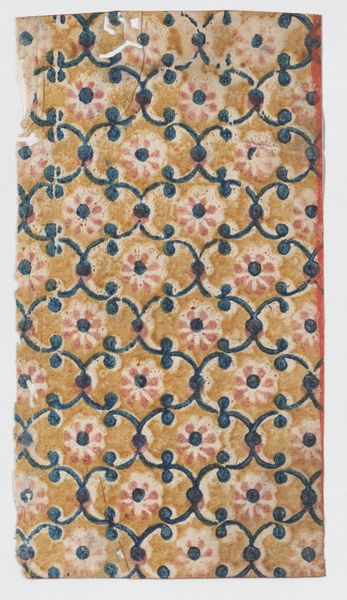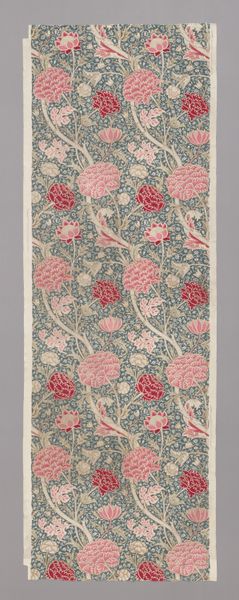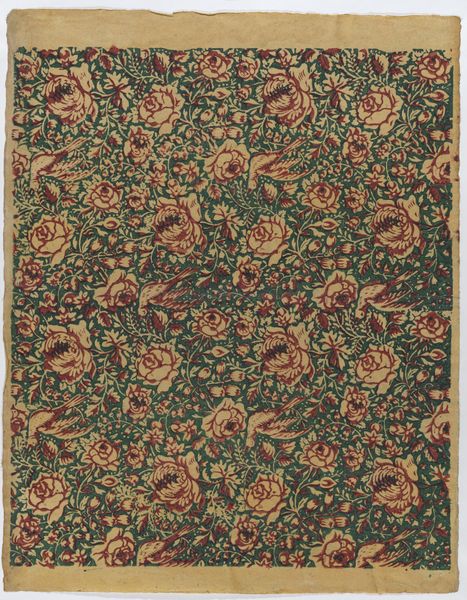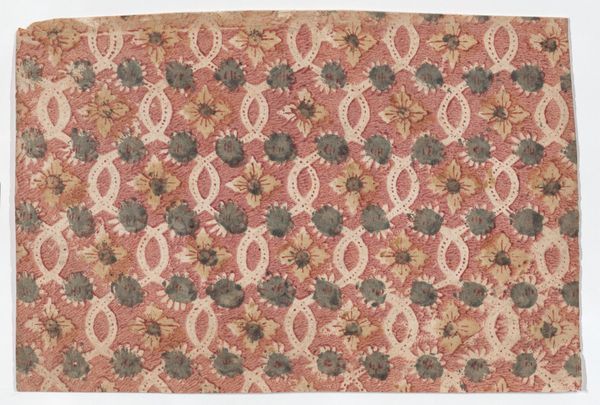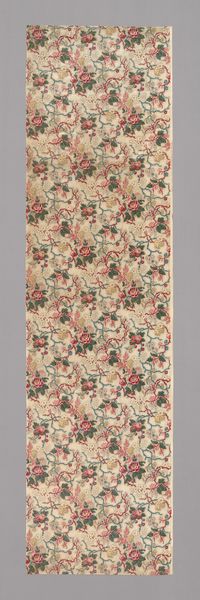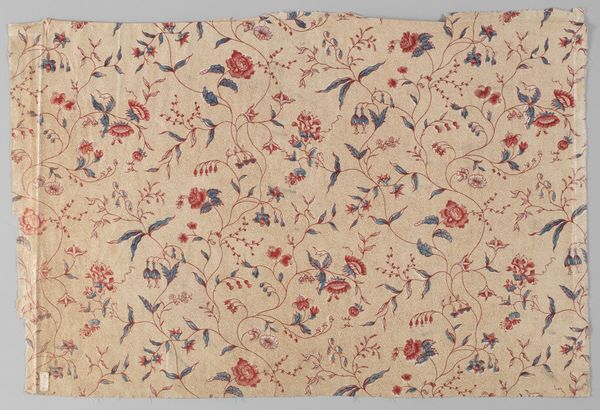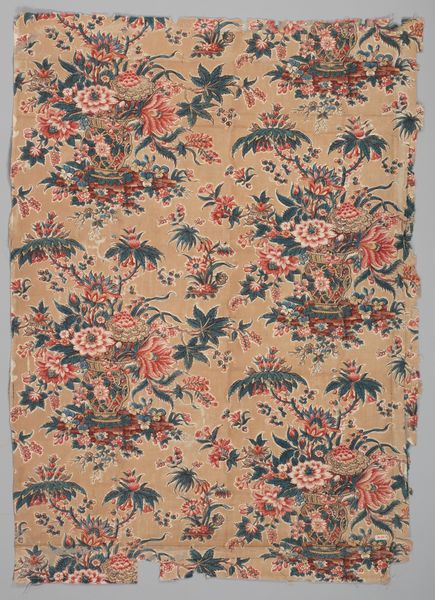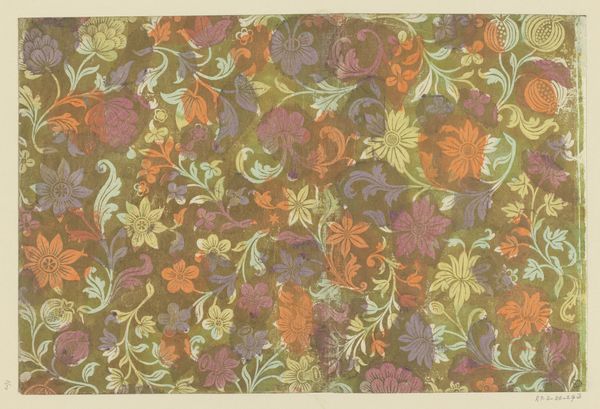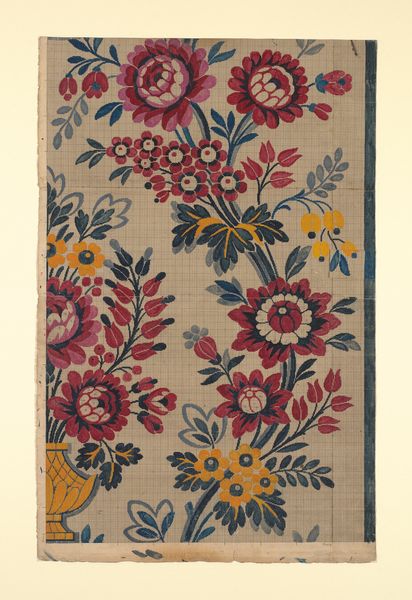
fibre-art, weaving, textile
#
fibre-art
#
weaving
#
textile
#
fashion and textile design
#
pattern design
#
ethnic pattern
#
fabric design
#
repetition of pattern
#
regular pattern
#
pattern repetition
#
textile design
#
imprinted textile
#
layered pattern
Dimensions: 77.2 × 64.7 cm (30 3/8 × 25 1/2 in.)
Copyright: Public Domain
Curator: Looking at this textile panel, created around the 17th century, the riot of color is immediately striking. What’s your first take? Editor: Well, aside from its visual vibrancy, I’m struck by the sheer labor involved in creating something like this by hand. Think of the processes of growing the plants to extract dye, spinning, weaving, designing, then endless hours to embroider or weave this densely figured panel… Curator: Exactly. That painstaking craftsmanship imbues the textile with a depth that transcends mere decoration. Each stitch, each carefully chosen hue seems to resonate with a deeper cultural significance. Floral motifs dominate, often carrying symbolic weight connected to notions of fertility and beauty. Editor: And who made it? Where? These textile panels tell us much about local economies, gendered labor, and global trade networks, depending on what fibers were available and what pigments. Knowing how it was made opens a door into understanding the lives of those involved, and what values their society placed on skillful work with the hands. Curator: Precisely, and it’s a visual echo chamber. The vibrant flowers evoke not just simple pleasure, but layers of meaning refined over centuries. Each stylized bloom contributes to an intricate language. Editor: That focus on repeated motifs strikes me as central too – what we might term ‘pattern and decoration.’ Consider the potential ritual and performative dimensions of laboring collectively on textile art. There is this inherent collectivity within these works through shared knowledge of material techniques and aesthetic values. Curator: It’s not only about the visuals. There is this sense of intimacy created, perhaps passed down as an heirloom that carries the history of a family or region. It is a potent object capable of communicating identity. Editor: A compelling argument. But equally powerful to me is seeing beyond individual genius and giving proper credit to a wider matrix of making, of shared materials, of processes that reflect on labor as well as aesthetics. Curator: An intersection of art and life. A potent object filled with layers. Editor: A matrix where materiality meets meaning in such fascinating ways.
Comments
No comments
Be the first to comment and join the conversation on the ultimate creative platform.
